Before we dive into my hip-hop memories, I want to offer up a quick thought. This journal is a canvas for my creative expression, a space where my thoughts take flight. It’s a departure from any business-related discussions, offering you a glimpse into the things that make me who I am. So, let’s keep in mind that I’m an artist, AISAMS and embark on this journey together – just my thoughts, unfiltered and authentic.
It’s March 28th, and I just watched a few videos on TikTok of people saying that we are experiencing the death of celebrity culture (finally), and one guy in particular discussing “the death of hip-hop.” I ran to the comments so fast! You know the saying, “one monkey don’t stop no show?” Yea, that! People have been working hard behind the scenes for years to bring hip-hop down, and because of its roots, it continues and will continue to grow. So, no, we are not witnessing the death of hip-hop. Sadly, hip-hop at it’s true essence, has never been given a real chance to rise. What we have witnessed over the last 50 years has been, in some parts, hip-hop music, but not truly what it was originally intended to be. I LOVE music, with hip-hop ranking in my top three favorite genres, so I thought I would share some thoughts in my public journal.
This original entry was written on January 18, 2024: A recent episode of ‘The Cutting Room Floor,’ a podcast hosted by Omondi with Yasin Bey as her guest, reminded me of this journal entry that has been sitting in my drafts since last June as we prepared to celebrate hip-hop’s 50th anniversary. Let’s talk about it… (I only shared this small blurb because this is how long I sit with things before I decide to publish. While others just have audacity and will hit publish as soon as they’re done, I want to read it a million times over to get a feel for it.)
Now on to the topic at hand…
From the earliest melodies that cradled my baby ears, to the beats and rhythms that now accompany every chapter of my life, music has been my unwavering companion. It’s a timeless love affair that transcends genres and resonates with the very core of my being. Whether soothing my soul or making me bounce, music has been the constant backdrop to the ebbs and flows of my life. In this journey through the symphony of existence, I find myself drawn to the diverse mosaic of musical expression. Join me as we embark on a melodic exploration, starting with the universal language that is hip-hop music.
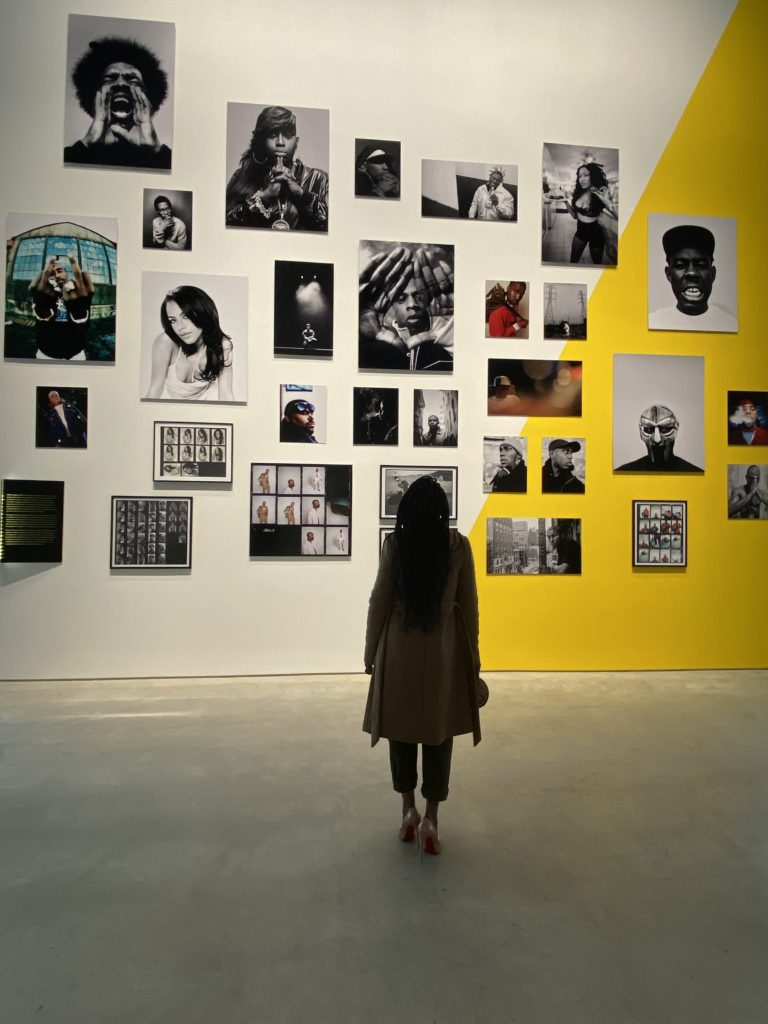
You know the iconic line, that whenever asked, sparks that unexplainable feeling of joy.
“When Did You Fall in Love with Hip-Hop?”
My love for hip-hop began in 1988 when I first heard Slick Rick’s, “Children’s Story,” off of his debut album, The Great Adventures of Slick Rick (a classic album till this day). In 1988, as hip-hop entered its teen years, and unfolded, my heart resonated deeply with Slick Rick’s unparalleled rhyming style. Slick Rick didn’t just rap over beats, he elevated the craft by narrating intricate stories through his verses. His methodic storytelling wasn’t just about rhyming; it was a vivid narration, a journey that unfolded with each word. Each story becomes just as important as the rhythm. Every line was a brushstroke painting a scene, and every verse was a page turned in the book of his imagination pulling you in. As a young child, with a strong creative trait and undiagnosed ADHD, my mind would wander, and I would daydream for hours with his music always playing in the background of my mind, taking me to the streets and pizza shops of his narrations. Slick Rick’s ability to craft narratives within his rhymes set him apart, turning each track into a cinematic experience. His storytelling was a sonic odyssey, a testament to the transformative power of words and rhythm. In songs like, “Hey Young World,” “Teenage Love,” and “Mona Lisa,” the rhythm wasn’t just a beat; it was the heartbeat of a tale told with finesse. Slick Rick’s delivery was a masterclass in lyrical storytelling, and his style will forever be embedded in hip-hop. As a dreamer at the age of 11, Slick Rick’s words weren’t just lyrics; they were a portal to a world of storytelling magic, and I was absolutely hooked.
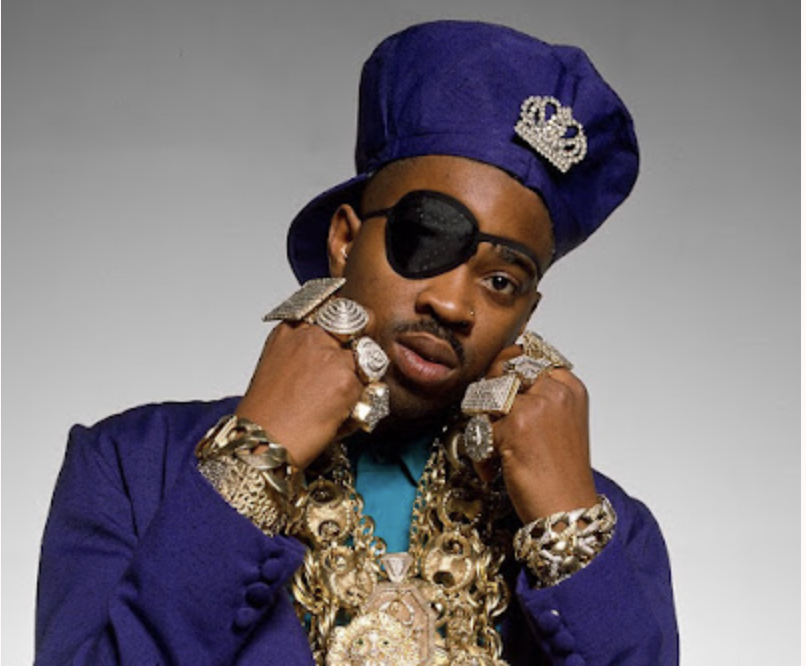
Picture this: an 11 year old me, and the mesmerizing cadence of Slick Rick, weaving tales that transcended music, but took me to a place that my parents would never allow me to visit.
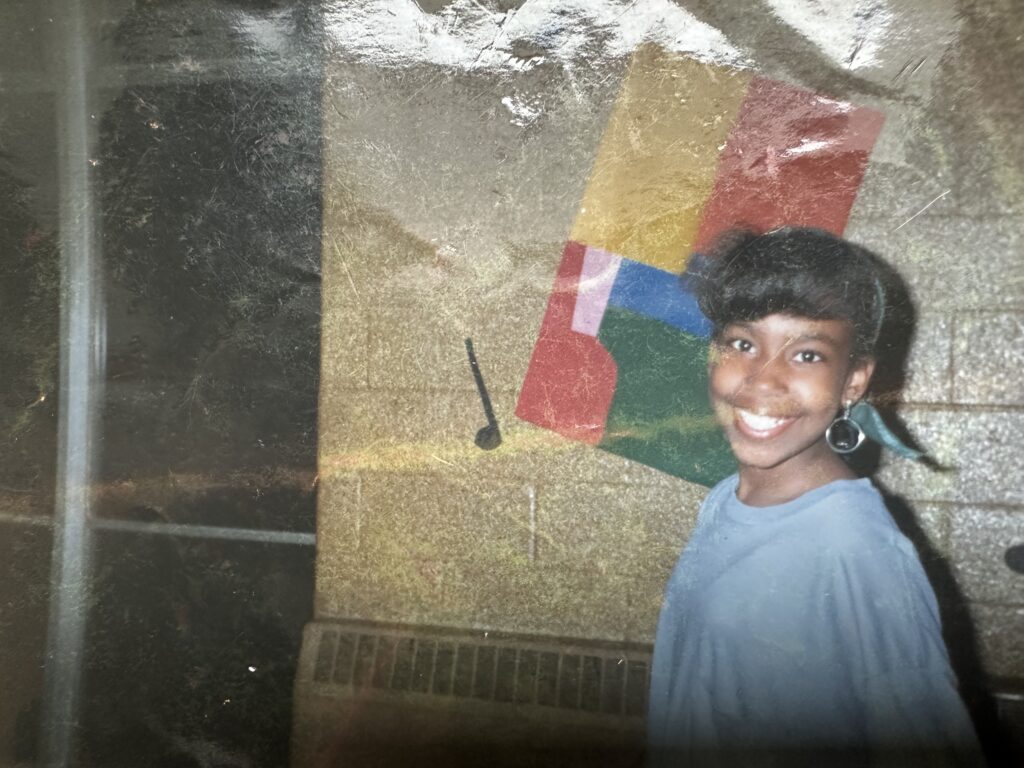
I might not have fully understood every track, especially the audacious ones like, “Treat Her like a Prostitute,” or “Indian Girl,” (don’t worry – my sisters wouldn’t let me listen to that) but it wasn’t about the words in that moment; it was about the artistry, the way he painted each image with perfect strokes. I sincerely believed that I was the child he was telling the bedtime story to in “Children’s Story,” and in that moment, I wanted be a rapper. I believed in my soul that I had stories to tell, even though, realistically, my 11-year-old self hadn’t accumulated much life experience. Slick Rick became the spark that ignited my love for sharing stories. Fast forward to today, and his music remains a soundscape in my life. As a matter of fact, I’m listening while I write this. The timeless quality of his artistry is like a cherished old book that you can’t put down. Slick Rick opened a door to my heart, allowing many other artists to step in and shape the special space I hold for hip-hop.
As a young girl with big dreams, I was building a mental library of intricate stories, believing that one day, I too, could contribute to the collection of hip-hop narratives. I needed to find someone that looked like me, I needed to find someone to emulate, I needed to find a female MC. Enter, the incomparable MC Lyte, one of the top 10 greatest female MCs to ever grace the mic. At a time where male voices dominated, MC Lyte emerged as a trailblazer, shattering barriers and paving the way for the ladies. Her debut album, Lyte As a Rock, also released in 1988, was a powerful statement that would redefine the role of women in hip-hop. It was more than an album; it was a breakthrough that left its undeniable mark on hip-hop history. It showcased Lyte’s unrivaled skill, lyrical prowess, and unapologetic confidence. Her verses tackled gender norms, sexism, and the many challenges faced by women everywhere in every industry, but especially in hip-hop. The album wasn’t just a collection of tracks; it was a manifesto, challenging the status quo and proving that women could command the mic with as much authority and skill as their male counterparts.
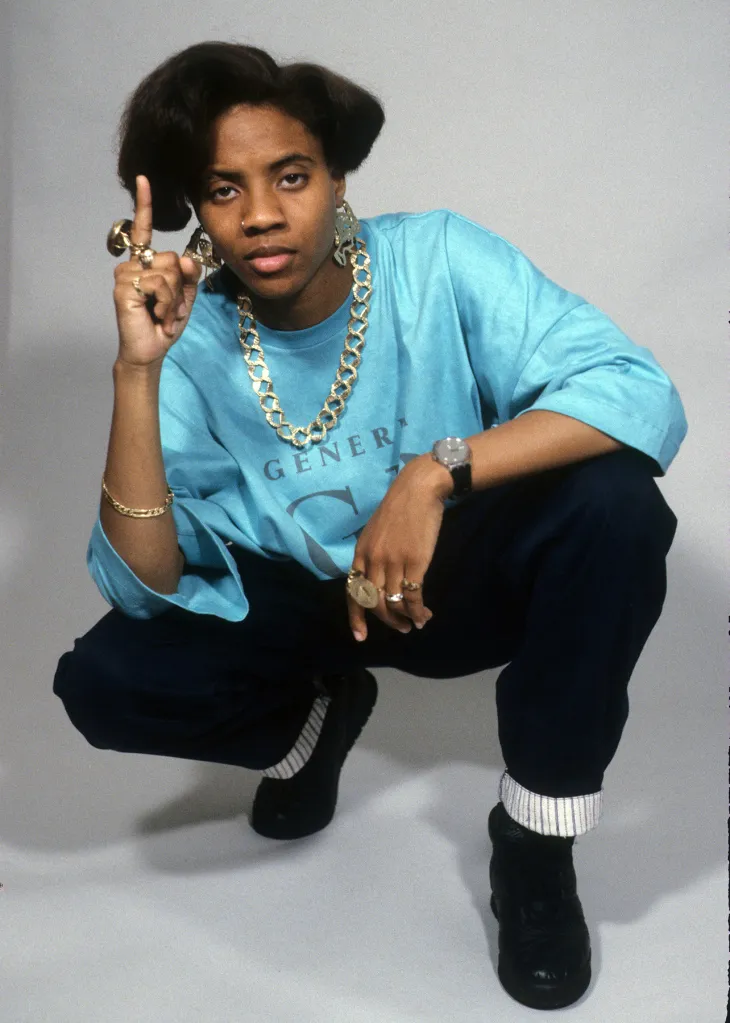
In some of my favorite tracks like “Paper Thin,” “Lyte the MC,” and “10% Dis,” she delivered lines that not only captivated me but would also set the stage for my latter years and how I would live parts of my personal life and in my many careers, that demanded respect and recognition.
When I would hear, “When you say you love me, it doesn’t matter, it goes into my head as just chit chatter,” I understood its significance to women, as I observed my oldest sister navigating relationships at the time. (Quick sidebar: my parents made my oldest sister bring me along everywhere she went to keep her out of trouble. Ironically, it did not achieve that goal; she just brought me along for the ride and the trouble!) Though these lines didn’t resonate with an 11 year old me, my older sister (not the same sister), loved it and I did too. She played that album 24/7, and I knew every word to her favorite songs. I was fortunate to have two older sisters each with distinct musical tastes. Their influence provided my ears with a rich sampling of diverse genres, expanding my journey through life via the ever-evolving symphony of sound.
MC Lyte’s legacy is not merely confined to her success as an artist but also in the opportunities she paved for future women in hip-hop. Before there was Foxy or Kim, Cardi or Nicki, there was MC Lyte, and she certainly doesn’t get the recognition she deserves. As the first solo female rapper to release a full album, MC Lyte remains a beacon of inspiration for those who dare to challenge conventions and make their presence felt in a genre that is continually evolving. Her resilience, talent, and determination not only solidified her place as an influential figure in the genre but also set the stage for a more inclusive and diverse hip-hop landscape.
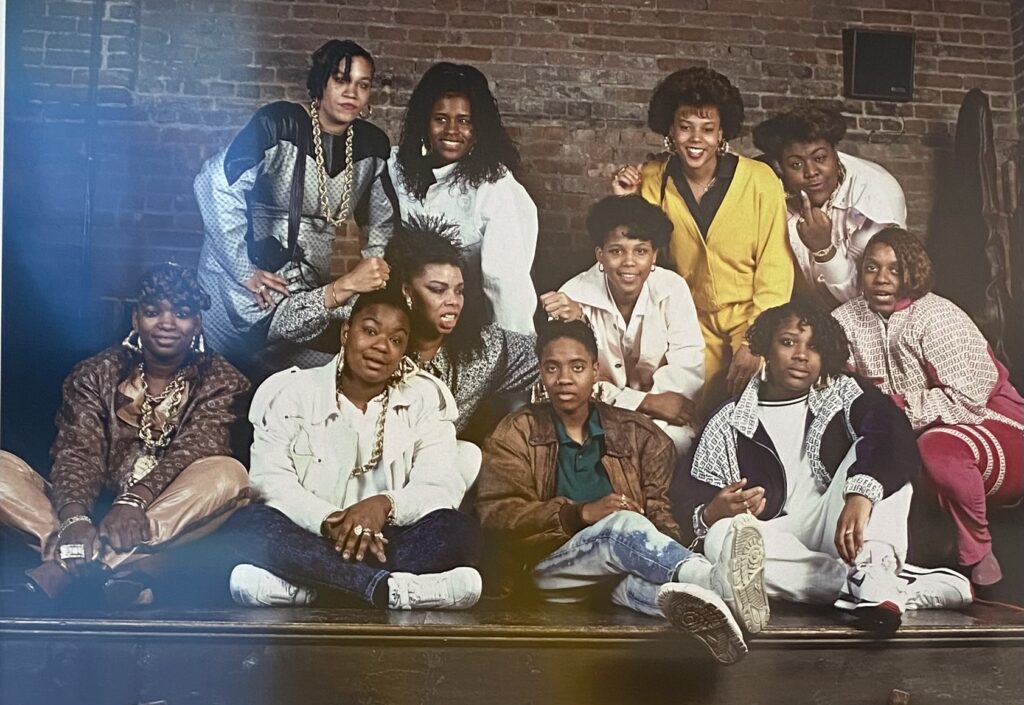
You see, hip-hop isn’t just music; it’s one of the greatest expressive forms of art. Crafted with the raw materials of reality, it transcends mere beats and rhymes. Producers become sonic architects, weaving expressive beats that pulse with the heartbeat of the streets. Artists, like skilled painters, take the vibrant hues of their environments and splash them onto the canvas of rhythm. Through their verses, they don’t merely tell stories; they invite you into the very fabric of their narratives, creating an immersive experience that resonates with the ebb and flow of life.
The storytellers within hip-hop narrate tales both good and bad, stitching together a myriad of human experiences. As you listen, you’re not just an observer; you become a participant in the narrative. It’s more than music—it’s a visceral journey that moves you, shakes you, and leaves a mark on your soul.
My love for hip-hop has been a profound exploration of its roots, its evolution, and its enduring power. From the lyrical conscious messages of its beginnings to the commercial pitfalls, and its latest resurgence, led by artists like Nas, hip-hop continues to captivate, challenge, and inspire. It’s time to recognize its true brilliance and appreciate the authentic voices that shaped the heartbeat of this extraordinary genre.
In the framework of hip-hop’s rich history, Part One has been a journey through the beats and rhymes that first captured my heart. From Slick Rick’s enchanting narratives to the broader cultural impact of hip-hop, we’ve explored the roots of a movement that transcends music—it’s a vibrant tapestry woven with stories, dreams, and the pulse of unique experiences.
As we close this chapter, it’s not just an end but a transition to the next verse. Part Two awaits, where we delve deeper into the complexities, the cultural shifts, and the untold stories within the hip-hop universe. Join me as we continue to unravel the threads that connect us to the heart and soul of hip-hop music.
This is not just a series about music; it’s an exploration of the human spirit, the stories that resonate, and the beats that echo through time. Until next time, keep the rhythm alive and the stories flowing. The saga of Hip-Hop continues…
So, when did YOU fall in love with hip-hop? Please share in the comments, I’m trying to see something…
XX, CB

I fell in love with hip-Hop in the early 90s. Some of my favOrite artists at that time were: Biggie, Nas, Wu Tang, and Mobb Deep.